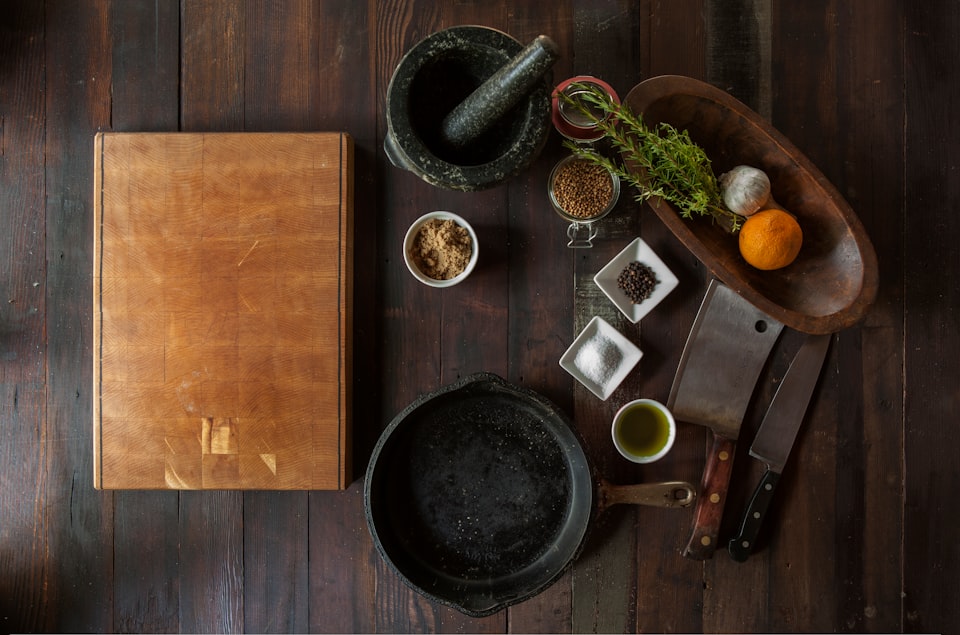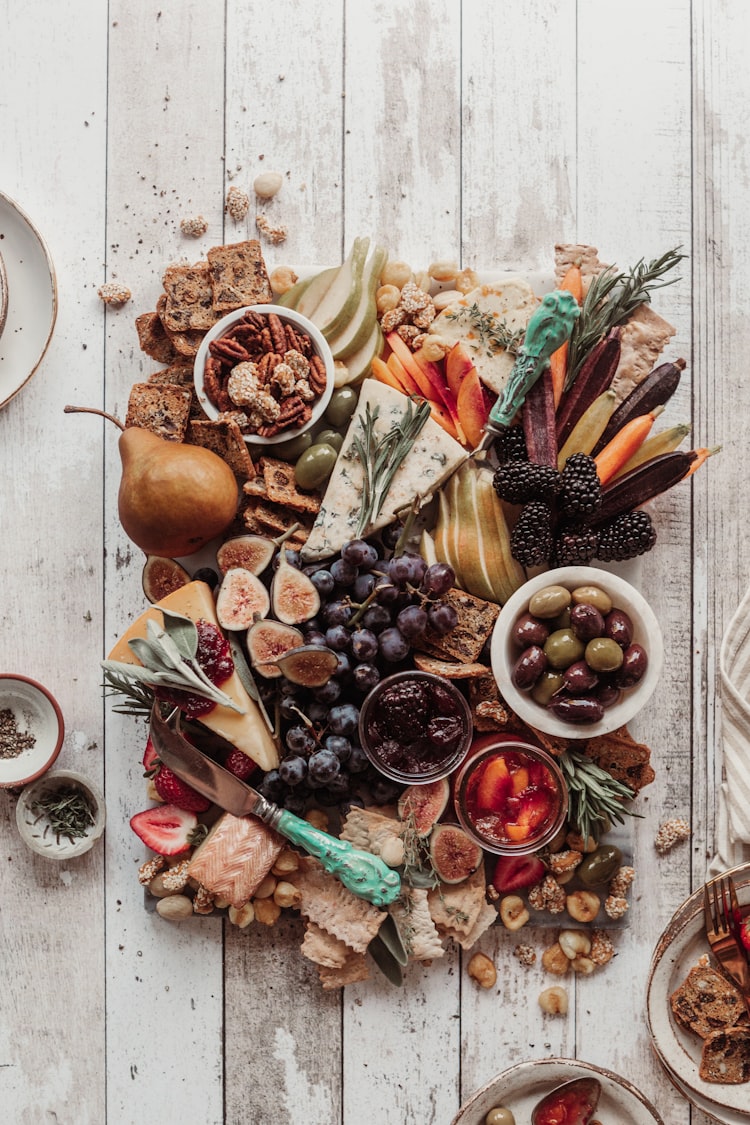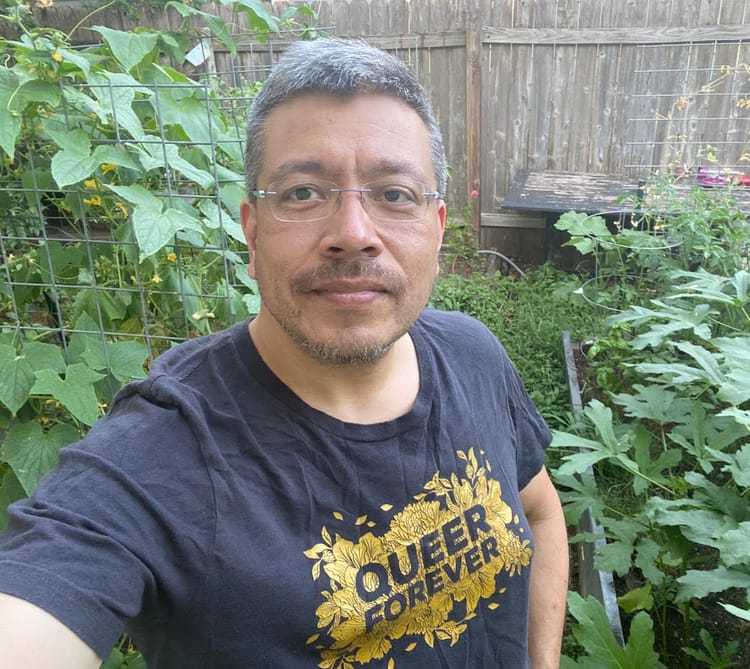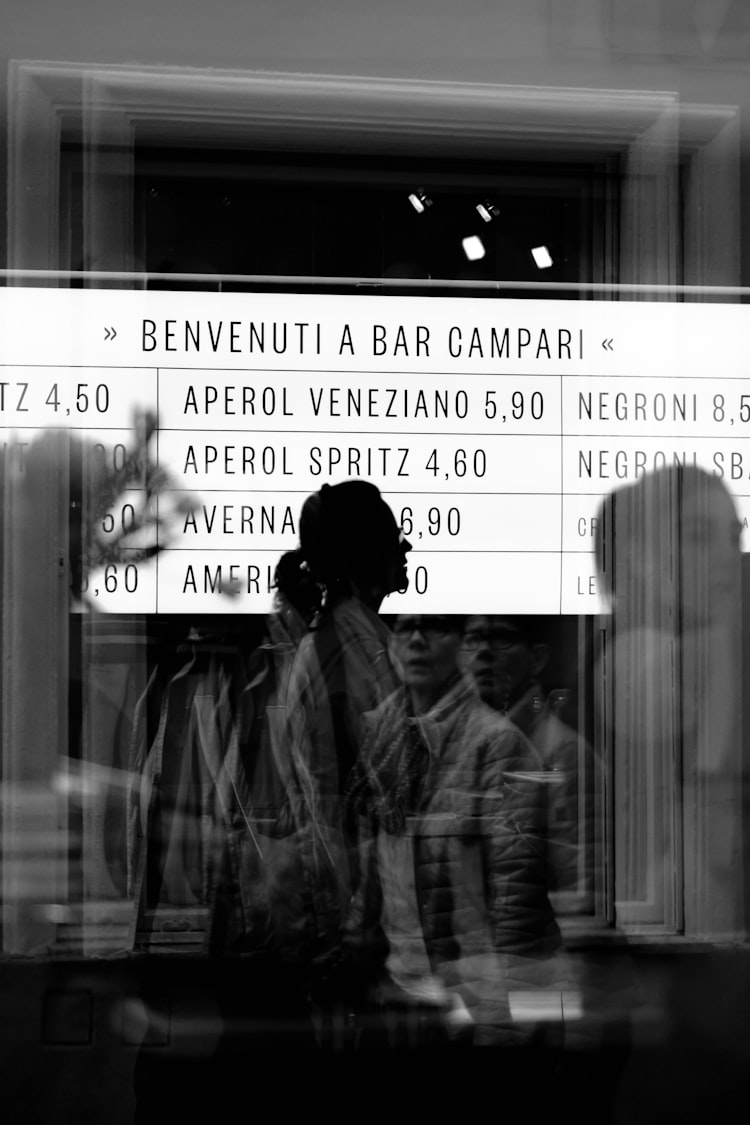I Don't Feel Like Cooking

This is what I make on nights I don’t feel like cooking is a phrase that makes me immediately suspicious of a recipe. Honestly, it doesn’t matter what comes next. Whether the recipe is innovative or exhaustingly dull, easy or difficult, promising or disappointing—it’s going to have a hard time winning me over.
This reaction of mine is both manifestly unfair and decidedly common. I suspect that I-don’t-feel-like-cooking recipes hit the wrong note so frequently because, like a lot of tech startups, they don’t really know what problem they’re trying to solve. The phrase “I don’t feel like cooking” carries a lot of hidden potential meanings, and those meanings vary enormously from day to day and from person to person.
There’s not one recipe that can help with DFLC across all contexts, but there are a lot of recipes that can help within specific contexts. To get deeper into this, I polled some experts (read: the friends of mine who were online while I was thinking about this) and dug into my own recipe archives, searching for the relationship between effort and output. Flipping that DFLC rock over revealed eight distinct issues, each of which has a different potential solution.
These underlying issues and possible answers aren’t comprehensive, but they might offer you a decent starting point next time you hit the Don’t Feel Like Cooking wall.
Here’s what to do when DFLC strikes due to…
Inexperience.
Someone who isn’t comfortable in the kitchen might not feel like cooking because it’s too daunting. For this person, a recipe that starts with ‘sweat down some diced onions’ is already promising the potential for frustration, judgment, waste, and shame.
- Try: Partial Cooking! Home cooks have a tendency to fetishize from-scratch meals, in part because we are frequently sharing methods with each other, and ‘open the jar’ isn’t a method that needs sharing. The result is that we tend to make it sound like cooking with pre-made ingredients isn’t actually cooking. But that’s bullshit! Jarred sauces, ready-to-steam vegetables, and par-cooked or microwaveable rice are great. Not only do they offer a guaranteed outcome in the kitchen, but they can give you a really stable foundation to build from as you learn more about cooking.
Use a simmer sauce you already know you like, and practice seasoning and cooking chicken or tofu to go with it until you’re not scared of messing up anymore. Slice onions to go into the steamer with your frozen veggies, until chopping onions stops feeling intimidating (steamed onions come out really sweet and mild, it’s nice, promise). Cook your chicken nuggets in the oven instead of the microwave, and while they cook, try making your own BBQ sauce to dip them in. Use components of a meal that you know will succeed to bolster your learning process, and you’ll see cooking go from something scary and overwhelming to something exciting and interesting. - Here’s a recipe for lasagne that is very easy to start, using all pre-made ingredients. The recipe includes ways you can add skill-building at every step of the process.
Boredom.
This problem sits directly opposite the stress of inexperience. Sometimes nothing feels exciting enough to put effort into. I suspect every experienced home cook encounters this malaise—a feeling that every familiar recipe is murderously boring, every ingredient is overused, there’s no novelty to reach for. The spark, as so many couples reluctantly admit to their marriage counselors, is gone.
- Try: A new cuisine! If you’re an experienced home cook who loves being good at everything you do, this is kind of gonna suck for you. But in a good way. Stepping out of your comfort zone is definitely the secret to zapping your creative boredom, and cooking in a cuisine you’re unfamiliar with (but generally enjoy) is a way to keep that ennui at bay for a long time. As you get more adept at cooking new kinds of food, you’ll also build skills that will allow you to cross-pollinate between one cuisine and another. When you’re exploring the relationships between the sauces and dumplings of cuisines from opposite sides of the globe, boredom is impossible.
- Here’s a recipe for Khoresht-e Bademjoon, a dish from a cuisine that was new to me when I first tried making it! This recipe includes an invitation to a notoriously challenging and rewarding preparation of rice, perfect if you’re looking to push yourself.
If you’re already an expert at Persian cooking, maybe you’ll find a recipe for a vegan “Spam” and rice bowl more toothsome! If you’re already great at both of these recipes, you’re a better cook than I am.
Disconnection from hunger (v1).
Lots of us have spent our entire lives learning to ignore signals from our bodies—especially hunger signals. A lifetime scuba-diving in the bleached reefs of diet culture leaves us ill-prepared for an adulthood in which we need to “eat” in order to “live”. We literally don't know how to recognize that we're hungry at all. Here’s something I recently learned that blew my mind: Thinking creatively about food is an early hunger signal! When you find yourself idly ruminating on recipes and meal planning, that can be a sign that you need to eat within the hour. If you don't respond to that signal, you'll get hungrier and hungrier – and that specific signal tends to go away the hungrier you get. Once you’ve reached a state of emergency-level hunger, planning and cooking a meal represents way too much effort and decision-making for your already-taxed brain, and you'll definitely get hit hard by DFLC.
- Try: Recognizing your hunger earlier! Okay, maybe that’s meta-helpful, but it’s not helpful right now when you’re shaky and cranky and don’t want to have to make anything. Sorry, you’re right to be mad at me.
The real answer is, try Cooking Snacks! When you need to cook a meal, but you’re too hungry to make decisions about cooking and you kind of want to kill everyone, grab a snack and eat it while standing in front of the open cupboard. It doesn’t matter what it is—this snack isn’t a meal, it doesn’t need to be balanced or healthy or even legally considered “food”. Pile canned Cheez™ onto a candy cane and call it Winter Wiz, I don’t care, just put nutrients into your mouth. As your blood sugar stabilizes and your starving nervous system calms down, possibilities will start opening themselves up to you. The potatoes in the cupboard won’t represent an impossible amount of time between you and an actual meal—you’ll be able to recognize them as food for later, and cooking them for the person you’ll be in an hour will feel more possible. - Here’s a recipe for protein balls! That’s a terrible name for a great snack that’s easy to throw together and keep in the fridge, for those moments when your hunger sneaks up on you and cooking a whole meal feels impossible.
Disconnection from hunger (v2).
Lots of us don’t experience hunger or hunger signals at all! This is not the same as ignoring hunger, or being unable to respond to perceived hunger because of obstacles introduced by mental or physical disability—those are valid issues, just separate ones. This is the problem of hunger signals not being sendable or receivable at all in the first place. Whether that’s due to neurotype, physiology, or medication, there might just not be recognizable hunger present for you to respond to. Eating without hunger is incredibly difficult—and cooking without hunger can feel like the worst chore of all: a chore that creates more chores.
- Try: Stimulating other areas of interest with your cooking. When hunger isn’t present, you need a different motivator to make cooking feel possible. Find an opportunity for artistic expression by covering a sheet of frozen phyllo dough with ricotta, then layering vegetables on top in the shape of a spaceship you admire (I’d pick NCC-1701-B but that’s just me). Bake that, and you’ve got yourself a tart. Focus on dexterity by carving apples, then eat the trimmings as you go. Activate an analytical mind by deciding to perfect lemon meringue pie until it’s a science. Or, my personal favorite: Cook for someone else, and remind yourself that it’s irresponsible to serve untasted food to a friend.
- Here’s a recipe for preserves, which are a perfect “I’m not hungry and never will be” food. You can fuss over prep as much as it pleases you to do so, eat bits of fruit as you go, and mess around with the method to get it as perfect as you want. Cut up some hard cheese and set out crackers to idly nibble at while you’re skimming foam, and you’ll find yourself sneaking in a decent lunch.
Depression.
Even apart from the way depression and antidepressants can smother hunger signals in the brain, mental illness can make the project of cooking feel like an impossible reach. Depression makes it really difficult for the brain to conceptualize the future, and can even make it hard to engage in imagination at all. A lot of the joy and pleasure of cooking comes from imagined outcomes and anticipation, so it makes sense that depression would make it difficult to drum up the energy required to participate in a taxing exercise with no conceivable reward.
- Try: Snacks for dinner! I’ve been spending a lot of time trying to figure out the difference between a snack and a cooked meal, and I think the real difference is that a snack requires almost no anticipation. You see the thing, you know what it’ll do for you, and one second later you’re experiencing that reality. Trying to overcome the way depression shuts down anticipation is hard, and you don’t have to try to muscle your way past it. I have frequently made a meal out of a yogurt, two pieces of peanut butter toast, and a pile of baby carrots. It’s fine.
If you want to want to cook, and depression is shutting that down, try outsourcing excitement. Tell a friend you’re cooking, and promise them pics of the end result. Post photos of the food you make to social media. Start a culinary journal to keep track of the things you make and how they turn out—I did this one for myself, and found that the promise of getting to analyze recipe failures gave me a reason to get out of bed and walk into the kitchen. Finding something to anticipate, even if it wasn’t that pleasant to anticipate, helped me get around the mental hurdle of being unable to look forward to things. - Bisque is one of my go-to depression meals, because it’s fucking easy, but it sounds fancy enough to motivate me to text people even when my brain has decided I should isolate myself from everyone and live in a hole in the ground. Bonus points because a rich creamy soup can make the difference between a depression nest and a coziness pit.
Disability.
Cooking requires a certain level of dexterity, stamina, and coordination that lots of us don’t have access to. Accessibility tools are expensive, pre-prepped ingredients are expensive, special ingredients that don’t trigger food sensitivities are—you’ll never guess where this is headed—expensive. Trying to accommodate a disability while cooking can be frustrating and tiring, and it’s daunting to try new methods and recipes without being certain of how timing will work out and what outcomes will result.
- Try: Meal bases with versatile modifiers. One of the most frustrating parts of disability is that for lots of us, ability level varies from day to day, and a meal I can make today might not be one I can make tomorrow. Fortunately, there are some base recipes that, stripped down to their bare bones, are relatively accessible, and can often be heavily modified, or purchased pre- or par-cooked. That means you can lean on these meal bases and add more or less complication depending on what you’re able to do. Buttered noodles, baked potatoes, and hearty collagen-rich broths are great on their own and even better as you add more layers and ingredients.
- Shing Yin Khor’s congee ratio is my absolute favorite accessible meal base!
Also, from a disabled person who needed to hear this way sooner than I did: Don’t be afraid to look for tools that will do the work for you. Food choppers, battery-operated can openers, bowl and spoon stabilizers, and grip-friendly knives are lifesavers. It’s okay to sit on a stool or tall chair in front of your cutting board. You can use scissors to cut meat if it’s easier than using a knife. Cooking with accommodations isn’t cooking wrong. Please build me a time machine so I can go back and staple this paragraph to past-me’s forehead.
Scarce ingredients.
You’re running low on everything you might be excited to cook. Maybe you’re running low on everything you know how to cook. The cupboard is looking threadbare, or the fridge only has half-eaten leftovers in it. Not inspiring. (Note that this isn’t the same issue as not being able to afford food—you and I both know that’s an issue beyond the scope of DFLC. For resources on trying to stretch a meal budget, check out Jack Monroe.)
- Try: Transforming ingredients. The key to using ingredients that feel unusable is to see them not as they are, but as they could be. Bread heels aren’t an exciting ingredient until you remember that they can be transformed into bread pudding. Stale leftover cake is a bummer until you fry it up like French toast. Plain Greek yogurt isn’t a meal until you slowly cook down those half-sprouted red onions you’ve been meaning to throw away, and combine them to make a spread for toast. I rarely recommend a mentality-reframe as a solution to a problem because mindset is rarely the issue, but in this case, perspective is key. Those abandoned dry soup mixes at the back of your pantry aren’t an obstacle—they’re a challenge, and you, my friend, are a master chef who is up for this task.
- This crustless quiche recipe is my absolute favorite way to make the most of a crisper drawer full of limp vegetables. It’s easy, like truly easy, and it will make you feel like a golden god. The recipe originally went out to the Stone Soup Supper Club but I’ve unlocked the post just for you, dear reader, because I think you deserve the world.
Hating cooking, now and forever.
Okay, yes, some people just don’t like cooking! That’s fine! If you don’t feel like cooking because you hate doing it, be free. Cooking isn’t morally superior to eating prepared food. It can be cheaper, but if your life is made substantially better by buying food someone else cooked, then that’s a good use of your money! Cooking at home can also be healthier, but that’s not the case as often as we’re told it is, and your happiness should be included in your idea of health—if cooking makes you miserable, you don’t have to do it in the name of eating less oil or whatever. Your concerns about finances and nutrition can probably be addressed by either changing the premade stuff you purchase, or combining it with different premade stuff that includes more fiber and fresh produce. Follow your star!
No matter what, remember that the point of cooking is nourishment and joy. If you can find one of those, you can find the other. Nourish yourself however you can. Carve out joy wherever you can. Feed every part of yourself.
You deserve it.
Coming Up This Month
- Madeline’s Summer Fruit Dessert
Madeline Ashby, a consulting futurist and science fiction writer based in Toronto, shares a recipe for a fruity summer dessert.
Her essay on cooking when cooking feels impossible will be in your inbox on June 14th. - Lucy’s The Eggs
Lucy Bellwood, a professional Adventure Cartoonist and author of 100 Demon Dialogues, shares a recipe for eggs that will change your life.
Her essay on coming to understand a relationship on its own beautiful terms will be in your inbox on June 21st.
If you’re a paying subscriber, come by the Stone Soup Supper Club for early access to this month’s recipes, our weekly chat, and more community! I can’t wait to find out how you’re doing. And if you’re not a paying subscriber, please consider joining the Supper Club or becoming a booster! Paid subscriptions keep the lights on here at Stone Soup, and every subscription makes a difference.
If you’d like to own the Personal Canons Cookbook ebook, which collects all these essays and recipes in easy-to-reference, clickable format—plus loads of bonus recipes from me!—join the Stone Soup Supper Club. The ebook is free for subscribers, who will get the download link in their inboxes in the first Supper Club email of 2024!
-gailey






Member discussion